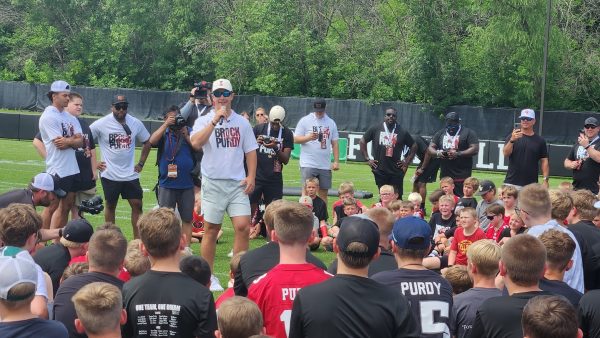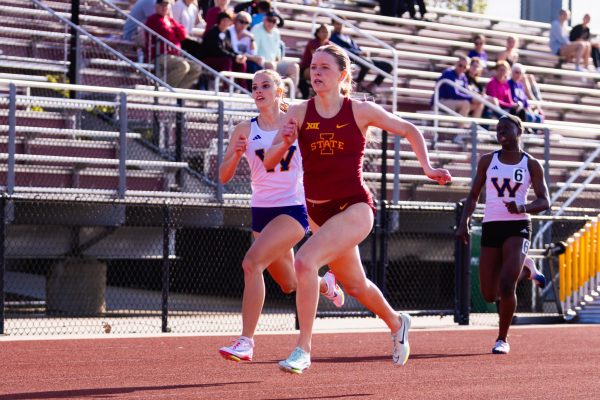Men’s golf team recalls individual record-breaking performances
Richard Martinez/Iowa State Dail
Scott Fernandez, senior from Spain, warms up for practice at Iowa State’s golf performance facility south of campus. Fernandez is one of 10 international students on the ISU men’s and women’s golf teams.
February 12, 2015
Many buzzwords and phrases exist in the game of golf, but few others resonate with golfers more than the concept of “going low.”
To find that zone where every putt drops, the wind seems always at one’s back and each yardage is perfect, are common goals for golfers at the highest level.
Going low is often a goal that can mean different things to different people. It is evident that current members of the ISU men’s golf team have tapped into what it takes to achieve such a feat, given the new-found frequency of their names in the program’s record book.
One current member whose low round resulted in a high position in the record book is Ruben Sondjaja.
In his freshman campaign last season, Sondjaja set Iowa State’s low 18-hole record at the ASU Thunderbird with a round of 64.
Similar to how perfect games in baseball or hot-shooting nights in basketball have a level of unpredictability, it is difficult to determine when everything will click for a low round like Sondjaja’s.
“I think you can usually look back and see a player has been trending in the right direction,” said ISU coach Andrew Tank. “I think you can usually look back and see there’s progress being made, but I don’t think there’s any one sign that shows that a low round is coming.”
While Tank’s analysis often proves to be true, Sondjaja’s record-breaking day displayed just how fickle golf can be. His 64 came sandwiched between rounds of 73 and 75, all of which he posted in the same tournament.
“I’ve had practice rounds where I’m hitting it terrible and I’ll shoot my lowest of that tournament,” said Sondjaja’s teammate Scott Fernandez, who has three rounds of 65 and owns the ISU record for career scoring average. “But if you’ve been hitting it great, it doesn’t say that you’re going to shoot 60.”
Luck, course knowledge, weather and dozens of other factors can all make the difference between a 64 and a 68, thus making a record-setting round hard to predict.
When players do find themselves in a position where they are firing on all cylinders, how to try to preserve a low round becomes more apparent.
“The big thing is not letting yourself sort of get in the way of that score,” Sondjaja said. “I think many people struggle with when they’ve got a good score going on, they start thinking too much about the end result and they get in the way, ultimately, of themselves.”
At the NCAA Regional tournament in 2014, Iowa State made it a point of emphasis to stay out of its own way in its adoption of the mantra of ‘Nothing to lose.’ Despite being cliché, it carried particular significance for the Cyclones.
The team entered the event without its No. 2 starter, Nick Voke, due to injury. With or without his services, Iowa State would have been considered an underdog to achieve the top-five finish required for advancement to the NCAA Championship.
Sitting three shots behind the coveted fifth spot, the Cyclones’ unyielding mentality paid off as the they rallied around Voke to advance to the NCAA Championship for the first time since 1953, setting an 18-hole team record in the process.
“I think the guys were playing with a lot of belief and not really worried-kind of that ‘nothing to lose’ attitude we tried to embrace at the end of last season,” Tank said of the team’s 18-under-par round of 270. “As I look back to that, the guys just kind of went out there and played and didn’t put too much pressure on themselves.”
Though Tank said specific records and achievements are not what fuel his team’s goals, they are an indicator of how far the program has come.
“I think it says a lot about the direction the program’s going,” Tank said. “It says a lot about those guys and the work they’ve put in to be setting records. They’ve sort of raised the bar and it’s fun to see those records being set. I really try to not take that for granted.”

















